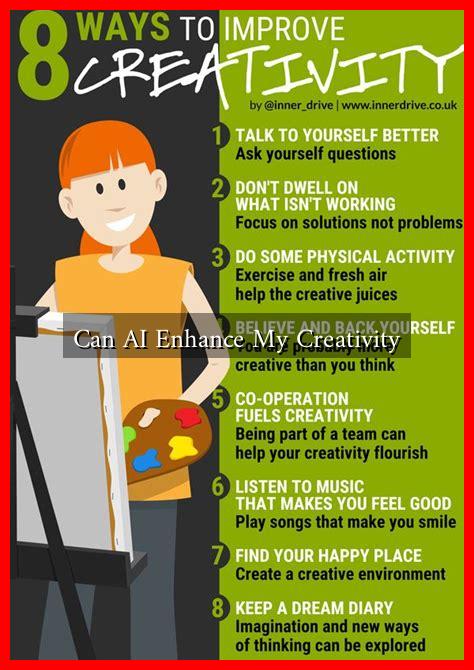-
Table of Contents
Can AI Enhance My Creativity?
In recent years, artificial intelligence (AI) has made significant strides in various fields, from healthcare to finance. One of the most intriguing applications of AI is its potential to enhance human creativity. But how exactly can AI serve as a catalyst for creative expression? This article explores the intersection of AI and creativity, examining how these technologies can inspire, assist, and even collaborate with human creators.
The Role of AI in Creative Processes
AI can play multiple roles in the creative process, acting as a tool, collaborator, or even a source of inspiration. Here are some ways AI is currently being utilized in creative fields:
- Content Generation: AI algorithms can generate text, music, and visual art. For instance, OpenAI’s GPT-3 can write poetry, articles, and even code, while tools like DALL-E can create images from textual descriptions.
- Idea Generation: AI can analyze vast amounts of data to identify trends and generate ideas. This can be particularly useful for marketers and advertisers looking for fresh concepts.
- Personalization: AI can help tailor creative content to specific audiences, enhancing engagement and relevance.
Case Studies: AI in Action
Several notable examples illustrate how AI is enhancing creativity across various domains:
- Music Composition: The AI music composition tool AIVA (Artificial Intelligence Virtual Artist) has been used to create original scores for films and video games. AIVA analyzes existing music to understand styles and structures, allowing it to compose new pieces that resonate with listeners.
- Visual Arts: The artist Refik Anadol uses AI to create stunning visual installations that blend art and technology. His work often involves training algorithms on large datasets of images, resulting in unique visual experiences that challenge traditional notions of authorship.
- Writing Assistance: Tools like Grammarly and Hemingway use AI to help writers improve their work by providing real-time feedback on grammar, style, and readability. This allows writers to focus more on their ideas and less on technical details.
Statistics on AI and Creativity
Research indicates that the integration of AI into creative processes is not just a trend but a growing necessity. According to a report by McKinsey, companies that leverage AI in their creative processes can see productivity increases of up to 40%. Furthermore, a survey conducted by Adobe found that 61% of creative professionals believe AI will enhance their creativity rather than replace it.
Challenges and Considerations
While the potential for AI to enhance creativity is promising, there are challenges and ethical considerations to keep in mind:
- Originality: As AI-generated content becomes more prevalent, questions arise about originality and authorship. Who owns the rights to a piece created by an AI?
- Dependence: Relying too heavily on AI tools may stifle individual creativity and critical thinking skills.
- Bias: AI systems can perpetuate existing biases present in their training data, leading to skewed or unrepresentative creative outputs.
How to Leverage AI for Your Creative Endeavors
If you’re interested in incorporating AI into your creative process, consider the following tips:
- Experiment: Try out different AI tools to see which ones resonate with your creative style. Platforms like Runway ML and Artbreeder offer user-friendly interfaces for artists and creators.
- Collaborate: Use AI as a collaborator rather than a crutch. Allow it to inspire you, but ensure your unique voice remains at the forefront of your work.
- Stay Informed: Keep up with the latest developments in AI technology to understand how they can be applied to your creative field.
Conclusion
AI has the potential to significantly enhance human creativity by serving as a tool for inspiration, collaboration, and efficiency. While there are challenges to navigate, the benefits of integrating AI into creative processes are undeniable. By embracing these technologies, creators can unlock new possibilities and push the boundaries of their artistic expression. As we move forward, the relationship between AI and creativity will likely evolve, offering exciting opportunities for innovation and exploration.
For more insights on how AI is transforming various industries, you can visit Forbes.


